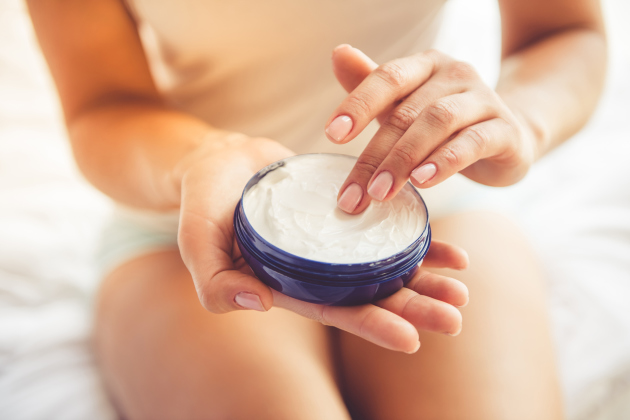Achieve wonderful winter skin
Winter has arrived. We know that winter weather can drastically impact road conditions. Have you thought of how it affects the condition of your skin? Winter’s colder temperatures and reduced humidity can break your skin down.
Every time you go from your warm cab into the freezing elements, your exposed skin experiences the shock of a drastic temperature drop, especially the skin of the body parts furthest from your core body heat (fingertips, toes, ears, chin, lips, and the tip of your nose). In winter, these become most prone to developing chilblains, frostbite and irritation.
If you have frequent short trips during which you get in and out of your rig many times on cold days, you may develop chilblains – a painful but not usually dangerous condition.
Chilblains develop in the small blood vessels of skin that has warmed up suddenly after repeatedly being exposed to cold (but not freezing) air. The redness, itching, inflammation and/or blisters of chilblains usually clear up within three weeks (as the weather gets warmer); however, their painful symptoms may recur seasonally for many years.
Frostbite is the result of prolonged exposure to extremely cold temperatures, such as when unloading or working in the winter elements.
Mild frostbite, frostnip, causes no permanent damage, but temporarily turns the skin yellowish or white. When reversing frostnip by warming the tissue, the affected skin may turn red for a short time, but does return to a normal color. No medical attention is required to treat frostnip.
However, if frostbite progresses to a severe stage in which skin and underlying tissues freeze, only medical treatment can reduce permanent damage.
As frostbite worsens, the skin becomes very cold and red, then numb, hard and pale. If exposure continues, the skin turns black and/or blistered; and, gangrene may occur, requiring amputation.
Fortunately, you are unlikely to suffer severe frostbite in your typical work situation, but if your winter route takes you through isolated areas, carry a good quality, insulated sleeping bag with your emergency supplies in case of a breakdown.
Since even milder winter weather can affect your skin, put on a hat, scarf and mittens or gloves before exiting your cab into the cold to reduce harmful temperature fluctuations.
Be careful! You can still get frostbite if you stay out too long.
Along with the cold, winter’s low humidity can also impact your skin, making it dry and cracked, painful and itchy, and/or more prone to infection.
Your skin’s natural ability to seal in moisture is less effective in winter; so, make a habit of using moisturizer every day.
Keep a small container of a hypoallergenic cream or lotion in your rig. Avoid irritation by using creams with no perfumes, abrasives or alcohol. Wash with a gentle skin cleanser or a moisturizer bar instead of soap.
After your bath or shower, pat your skin with a towel to leave a little moisture on your skin. Wear sunscreen when outdoors if you expect prolonged exposure to the sun’s magnified reflection off the snow. When possible, use a room humidifier. These steps will help protect your skin from the outside-in.
You can also build your skin from the inside-out by regularly including the following skin-friendly, antioxidant-rich foods in your diet to best promote skin health: yellow and orange fruits and vegetables, such as carrots, and apricots; green, leafy vegetables, such as spinach and kale; fatty fish, such as mackerel and salmon; peas, lentils and beans; tomatoes; blueberries; and nuts.
These are conveniently available in grocery stores to pack in your lunch or to pick up for a snack, or in truck stops to order from the menu.
Remember to keep your skin hydrated by including fruits and vegetables that are full of water, like watermelon, cantaloupe, apples, oranges, kiwi, and celery, tomatoes, cucumbers, zucchini, and carrots.
Pack a water bottle, and regularly drink at least eight cups of water throughout each day.
Wishing you wonderful winter and a healthy new year.
***
Karen Bowen is a professional health and nutrition consultant, and she can be reached at karen_bowen@yahoo.com.

Have your say
This is a moderated forum. Comments will no longer be published unless they are accompanied by a first and last name and a verifiable email address. (Today's Trucking will not publish or share the email address.) Profane language and content deemed to be libelous, racist, or threatening in nature will not be published under any circumstances.